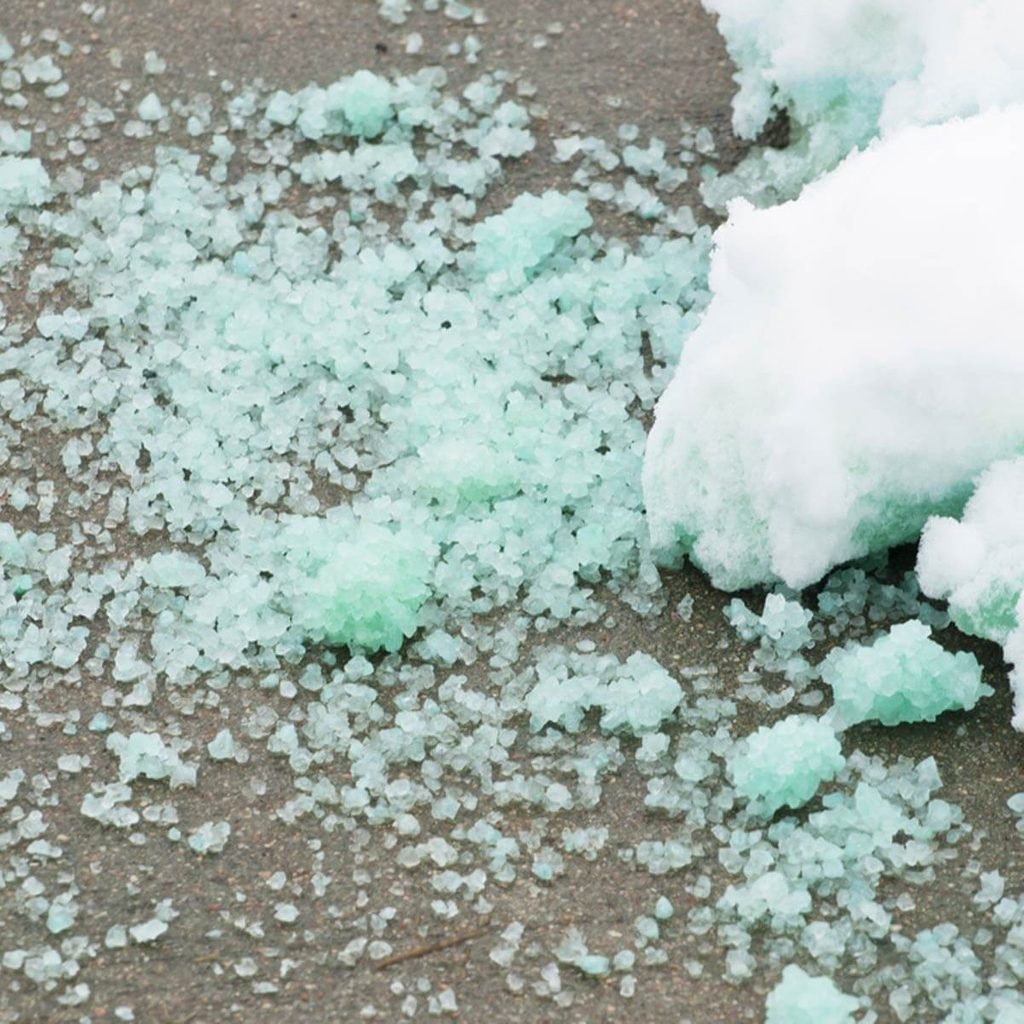Here’s Why You Shouldn’t Use Salt on Concrete
Updated: Jan. 27, 2023

You really need to avoid those ice melters! Here's why.
Shoveling snow can really be a pain. In fact, shoveling snow can cause a heart attack. Even if you use a snowblower to clear your driveway and sidewalks, you may still want to find an alternative, like using ice melters. While that may seem like an easy answer to the problem, it’s actually affecting your concrete in a serious way.
According to the Michigan Concrete Association, ice melters or rock salt can cause damage to concrete—particularly new concrete. When it snows and the ice starts to melt, the water that soaks in the concrete could refreeze if the temperature starts to drop. The water then expands when the temperature drops, which can cause tiny cracks…or worse. This may be a process you’re familiar with if you live in a colder environment that experiences a lot of snow. This can especially be hard for new concrete, which takes up to a year to dry out.
Since this is a process that happens after ice melts, adding an ice melter (which is heavy in chemicals such as sodium chloride, magnesium chloride, calcium chloride, or other elements) can cause corrosion within the layers of your concrete. Adding these extra chemicals can cause issues with the concrete because it isn’t part of the natural freezing and melting process that the concrete was made to go through.
Think of the driveway (or walkway) similar to washing your face. You don’t want to add heavy chemicals that could cause issues with your skin, because the pores will get clogged up. You want to have clean pores and take care of your skin. Similar to one having open pores on their skin, concrete pores work the same way.
Alternatives to Salt and Ice Melters
Michigan Concrete Association recommends a regular salt instead of an ice melter, like Morton table salt, since it’s 100 percent sodium chloride (NaCl). This, however, is recommended for concrete that has been set for quite some time.
One construction company has gotten creative with some alternatives to salt by looking at some natural ice melters that won’t affect your driveway. G&B Construction recommends pickle brine or even sugar beet juice, which is a 100 percent natural ice melter liquid.
Last, but certainly not least, you can just go the traditional route and remove snow on your own. But make it easier for yourself and try one of these incredible snow removal tools. They’ll make your snow removal process a lot easier.